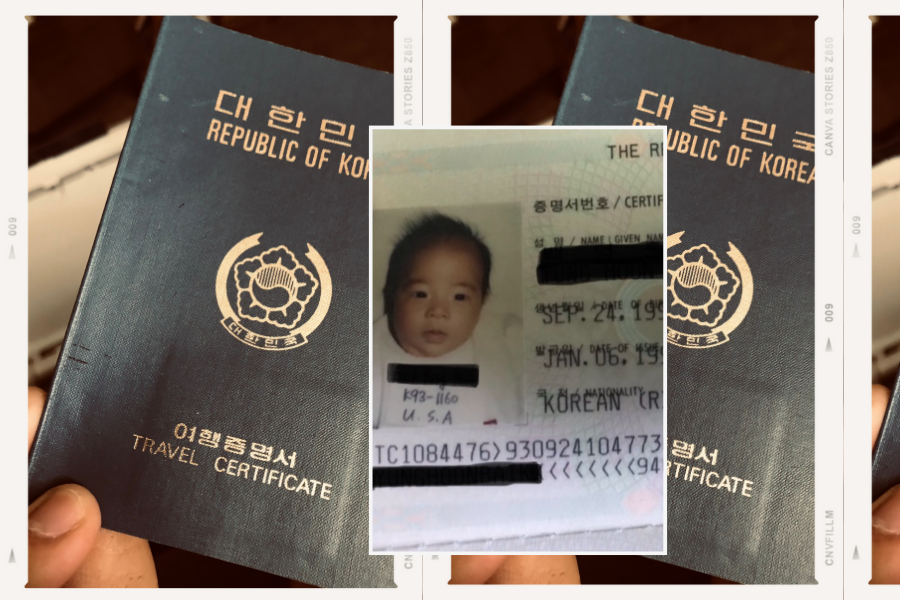Rewriting the Narrative
As a kid, I was always interested in history.
I grew up watching old war movies with the men in my adoptive family—The Bridge over the River Kwai, The Dirty Dozen, Tora! Tora! Tora! Naturally, I was drawn to the daytime programming on the History Channel, mostly hoping to see more action and heroics. And as a boy who liked to play with GI Joes and toy airplanes, those battles had to be fought against some kind of enemy, so I learned who all the “villains” were in these old movies—the Axis powers, the fascists, the kamikaze pilots. The Americans in these films, on the other hand, were almost always portrayed as the heroes.
But as I got older and learned more about history in school, about the bombing of Hiroshima and Nagasaki, the occupation of Japan, and the Korean War, I started to understand the complexity of these conflicts, and wondered how any of this was connected to my story as a transracial adoptee. Back then, I had nothing but questions about my place in the world, and not many people to turn to with similar lived experience. Because I’d been adopted by a white family and was living in a predominantly white middle-class suburb, I didn’t get the chance to be around many other people who looked like me.
“Back then, I had nothing but questions about my place in the world, and not many people to turn to with similar lived experience. ”
Since recently moving to the Pacific Northwest, I’ve finally had the opportunity to connect with many more Asian adoptees through social media groups and by making connections within the literary community. This, coupled with returning to Korea for the first time since my adoption, stirred something in me creatively that allowed me to begin writing about adoption in ways I had been unable to before. Any trepidation I might’ve had about uncovering old wounds was more easily overcome knowing I had friends to lean on who deeply understood what I was going through. I believe being in community with other adoptees gave me the courage to finally tackle this subject head on.
Asian American Caucus at the AWP Conference in Seattle
And so, with this newfound courage, I began to seek answers to those questions I’ve always held about Korean history. To do that required an extensive amount of research and what eventually turned into a months long deep dive into the history of the Korean War and the adoption industry. Credit goes to the many scholars and historians who came before me, whose work helped me craft this statistical narrative timeline.
It just so happened that as I was in the middle of my research, the AP News documentary debuted on PBS. Like many adoptees who tuned in and heard the many harrowing stories of forced separation, coercion and systemic adoption fraud, I was left feeling appalled and enraged. At this point, I had already begun drafting the portion of the poem tracking the number of casualties and subsequent number of orphaned children. So then I turned my attention to bridging the gap between the reporting done in the documentary and the research I had already been doing on comfort women and the American military presence in Korea post-1953.
Moving forward, I hope this piece can help readers—both adoptees and non-adoptees alike—better understand the connection between the United States’ involvement in the Korean War and what eventually became a fraudulent adoption industry. The number of lives lost during war, the countless number of women forced into prostitution, all the families who were irreparably fractured—my hope is that readers will see not only the correlation between those statistics but also remember the people and the individual stories those statistics represent.
“My hope is that readers will see not only the correlation between those statistics but also remember the people and the individual stories those statistics represent. ”
The same can be said for all of the adoptees scattered across the globe. Although it is very easy to be dumbfounded by a number as staggering as 200,000, it’s crucial to remember that we as adoptees are more than just a number, that we are more than just a designation stamped on a file. We can rewrite our path forward and, in some cases, even rewrite our past, or at the very least recontextualize and expose the lies of a corrupt system. And as I’ve discovered with the community I’ve found with other adoptees, by coming together, by leaning on one another, we can rewrite the adoption narrative.
About Jonathan’s poem
Jonathan Wittmaier’s poem brings history to life, revealing the hidden ties between the Korean War and the adoption industry. Through powerful storytelling, he uncovers stories often left out of history. Read Circumstantial Evidence here.



